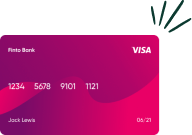
In the vast and often complex world of personal finance, few principles are as straightforward and transformative as the concept of "pay yourself first." This philosophy is not merely a savings tactic; it is a fundamental shift in financial mindset that prioritizes future security over present consumption. It dictates that upon receiving income, a predetermined portion is immediately allocated to savings or investments before any bills, discretionary spending, or other expenses are considered. This approach transforms saving from a residual afterthought—whatever is left at the end of the month—into a non-negotiable pillar of one's financial routine, ensuring consistent progress toward long-term goals.The mechanical execution of this principle is as important as the philosophy itself. The most effective method is to automate the process. By setting up direct transfers from a checking account to dedicated savings or investment accounts on the same day paychecks are deposited, individuals remove the need for willpower and decision-making. The money is seamlessly diverted before it can be spent, effectively making it invisible to the everyday budget. This automation harnesses the power of consistency, treating contributions to one's future self with the same unwavering obligation as a mortgage or utility payment.The psychological impact of this strategy is profound. It reframes savings not as a loss of spending power but as the primary financial objective. This ensures that goals like building an emergency fund, saving for retirement, or investing for a down payment are systematically funded, regardless of monthly fluctuations in spending. Over time, this consistent discipline capitalizes on the power of compound growth, where even modest, regular contributions can grow into substantial sums. The habit of paying yourself first instills a sense of financial control and purpose, reducing anxiety about the future and building confidence in one's ability to achieve financial independence.Ultimately, "pay yourself first" is the cornerstone of a proactive financial life. It is a declaration that one's own future security is the most important bill to pay. This principle ensures that personal aspirations are never sacrificed to the immediacy of discretionary wants. By making saving an automatic and priority expense, individuals build a powerful foundation of wealth that can weather life's uncertainties and fund its greatest opportunities. It is a simple yet radical act that empowers individuals to become the architects of their own financial destiny, ensuring that they are building a future of security and choice with every paycheck they earn.



 In the vast and often complex world of personal finance, few principles are as straightforward and transformative as the concept of "pay yourself first." This philosophy is not merely a savings tactic; it is a fundamental shift in financial mindset that prioritizes future security over present consumption. It dictates that upon receiving income, a predetermined portion is immediately allocated to savings or investments before any bills, discretionary spending, or other expenses are considered. This approach transforms saving from a residual afterthought—whatever is left at the end of the month—into a non-negotiable pillar of one's financial routine, ensuring consistent progress toward long-term goals.The mechanical execution of this principle is as important as the philosophy itself. The most effective method is to automate the process. By setting up direct transfers from a checking account to dedicated savings or investment accounts on the same day paychecks are deposited, individuals remove the need for willpower and decision-making. The money is seamlessly diverted before it can be spent, effectively making it invisible to the everyday budget. This automation harnesses the power of consistency, treating contributions to one's future self with the same unwavering obligation as a mortgage or utility payment.The psychological impact of this strategy is profound. It reframes savings not as a loss of spending power but as the primary financial objective. This ensures that goals like building an emergency fund, saving for retirement, or investing for a down payment are systematically funded, regardless of monthly fluctuations in spending. Over time, this consistent discipline capitalizes on the power of compound growth, where even modest, regular contributions can grow into substantial sums. The habit of paying yourself first instills a sense of financial control and purpose, reducing anxiety about the future and building confidence in one's ability to achieve financial independence.Ultimately, "pay yourself first" is the cornerstone of a proactive financial life. It is a declaration that one's own future security is the most important bill to pay. This principle ensures that personal aspirations are never sacrificed to the immediacy of discretionary wants. By making saving an automatic and priority expense, individuals build a powerful foundation of wealth that can weather life's uncertainties and fund its greatest opportunities. It is a simple yet radical act that empowers individuals to become the architects of their own financial destiny, ensuring that they are building a future of security and choice with every paycheck they earn.
In the vast and often complex world of personal finance, few principles are as straightforward and transformative as the concept of "pay yourself first." This philosophy is not merely a savings tactic; it is a fundamental shift in financial mindset that prioritizes future security over present consumption. It dictates that upon receiving income, a predetermined portion is immediately allocated to savings or investments before any bills, discretionary spending, or other expenses are considered. This approach transforms saving from a residual afterthought—whatever is left at the end of the month—into a non-negotiable pillar of one's financial routine, ensuring consistent progress toward long-term goals.The mechanical execution of this principle is as important as the philosophy itself. The most effective method is to automate the process. By setting up direct transfers from a checking account to dedicated savings or investment accounts on the same day paychecks are deposited, individuals remove the need for willpower and decision-making. The money is seamlessly diverted before it can be spent, effectively making it invisible to the everyday budget. This automation harnesses the power of consistency, treating contributions to one's future self with the same unwavering obligation as a mortgage or utility payment.The psychological impact of this strategy is profound. It reframes savings not as a loss of spending power but as the primary financial objective. This ensures that goals like building an emergency fund, saving for retirement, or investing for a down payment are systematically funded, regardless of monthly fluctuations in spending. Over time, this consistent discipline capitalizes on the power of compound growth, where even modest, regular contributions can grow into substantial sums. The habit of paying yourself first instills a sense of financial control and purpose, reducing anxiety about the future and building confidence in one's ability to achieve financial independence.Ultimately, "pay yourself first" is the cornerstone of a proactive financial life. It is a declaration that one's own future security is the most important bill to pay. This principle ensures that personal aspirations are never sacrificed to the immediacy of discretionary wants. By making saving an automatic and priority expense, individuals build a powerful foundation of wealth that can weather life's uncertainties and fund its greatest opportunities. It is a simple yet radical act that empowers individuals to become the architects of their own financial destiny, ensuring that they are building a future of security and choice with every paycheck they earn.


